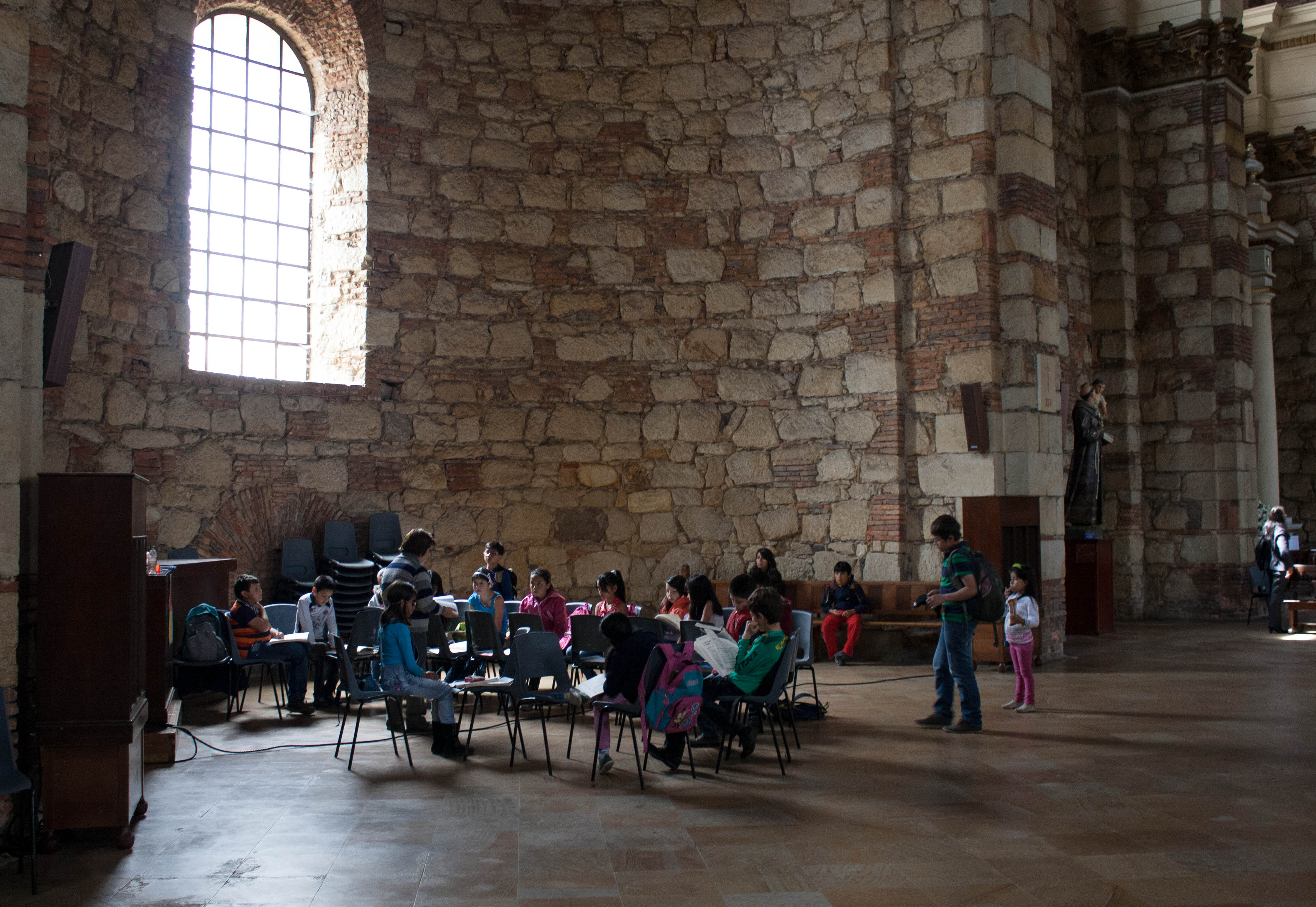Faith in Action in the Rio Grande Valley
Neither of their options, whether they’re sent to a detention center, run as a federal prison, or released with a GPS-monitoring ankle bracelet, is humane. Their only reason for entering this country is being compelled to emigrate from their own country to another because of the violence in their homeland and fearing for the life of their children.
Popular Protests Are Spreading Across Central America, and Washington Is Getting Nervous
Washington’s response to all of this is the Plan for the Alliance for Prosperity, showcased in a NYT op-ed by Joe Biden that held up Plan Colombia as the model. It’s really just the next stage in the “security corridor” the United States is building, running from Colombia through Central America to Mexico: a perfect machine of perpetual war. We might chuckle at the libertarian dream of starting year zero in Honduras, but, really, what the Obama administration is implementing is different only in scale: all of Central America as opposed to a few start-up cities.
El Chapo embodies all of America’s misguided anxieties about Mexico
So as Americans obsess about containing Chapo, the man, that focus is also a misplaced anxiety about containing the border, containing drugs and containing the movement of people when we should be focusing on reforming our own dangerous policies and attitudes. This single story of Mexico, designed to resonate with our anxieties, is more dangerous than anything that might actually cross our southern border. And the story of Mexico and America is more complex than a single bogeyman.
El Chapo Escape Illustrates Mexico’s Prison Problem
Under Peña Nieto, prison incidents have doubled and escape attempts are on the rise. Five federal penitentiaries have been witness to jailbreaks in the past three years with Joaquín Guzmán’s being the 12th. Joaquin Guzman became the third prisoner to successfully escape from a federal prison since Enrique Peña Nieto took office in December 2012 as jailbreaks have increased under the new administration.
Failure to Protect Witnesses Fuels Impunity in Honduras
The inability to protect witnesses can not only scupper individual cases, it also contributes to a broader culture of impunity by discouraging potential witnesses, or those who would like to file police reports, from coming forward. This situation is exacerbated by low confidence levels in security and justice institutions due to corruption and links to organized crime. While much media and government attention focuses on police reform in Honduras, the lack of witness protection highlights the need for a more integrated approach. No matter how clean and effective the police are, if arrests do not lead to prosecutions and convictions the country’s dire track record on impunity, and its security crisis are likely to continue.
Raising An Iron Fist Against El Salvador’s Gangs
The use of the military to fight crime in a country where the civilian population bore the brunt of the war’s atrocities is extreme. But, so too, is the extent of the violence, which, again, has helped fuel a massive migration to the United States. That’s why despite the cautionary example of history, some beleaguered citizens are calling for strong-arm tactics to quell the gang violence.
Revealed: USAID funded group supporting Haitian president in 2010
The U.S. Agency for International Development gave nearly $100,000 to a Haitian political movement with close ties to President Michel Martelly in the country’s 2010 elections,documents obtained by Al Jazeera show. The money was allocated shortly after Washington helped overturn the election results to thrust Martelly into power.
Will Colombia’s peace talks aid environmental issues?
“Conflict does not simply impact the lives of the combatants, but also the lives of the populations, the communities, and also the territories that people depend on to live. Yet environmental damages are not addressed in Havana nor or they considered to be war crimes.” During years of conflict, violence has forced millions of Colombians to flee. Multinational corporations, mining companies and large scale agribusinesses move in to use the land left behind. The often resulting environmental damage also impacts local communities and populations, revealing an institutional disconnect in the relationship with the land.
Colombian City’s New Face and Violent Underbelly Collide
But many residents say they believe the violence is meant to drive them from areas coveted as port facilities or waterfront tourist attractions. The port here has attracted large investments from Colombian and international companies. A new terminal to export oil is being built. A new container port is under construction. There is a new industrial park and a new container and trucking terminal. The total amount invested adds up to billions of dollars.
Pope Asks Forgiveness for Church’s Crimes Against Bolivia’s Indigenous
Pope Francis apologized Thursday for the sins, offenses and crimes committed by the Catholic Church against indigenous peoples during the colonial-era conquest of the Americas, delivering a powerful mea culpa on the part of the church in the climactic highlight of his South American pilgrimage.


